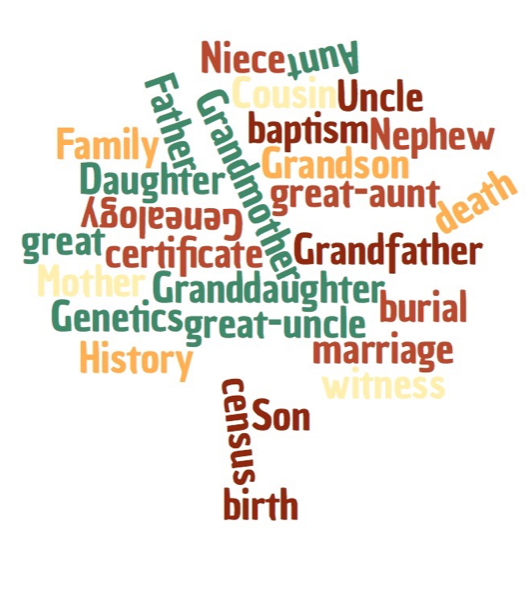Find Your Family
Notes from a Family History course for beginners

1. Introduction
Researching your family history is a real-life puzzle. It’s better than any jigsaw or Rubik’s cube and every puzzle is unique. Many people choose to start with themselves but, if you have children or grandchildren, you might start with them, or perhaps add them and their other ancestors later.
Some puzzles take years to solve. I have my Cartmell ancestry back to 1540 but there is doubt now about the identification of my great great grandfather that would wipe all that out prior to 1856. It’s a puzzle I have been working on since 1984. With modern DNA testing I may finally be able to crack it. Meanwhile I have had success with my other lines—and remember those double every generation: 2 parents, 4 grandparents, 8 great grandparents, 16 great great grandparents …
Family History is real history
Once you have constructed some of the skeleton of your family—with names & dates—you can start adding where they lived, what they did, how they survived, how and where they travelled, and sometimes how they were heroes or what disasters befell them…
You can explore their history and simply record it or choose to write it up and illustrate it as a story; it’s a history of which you will be the world’s expert.
The starting point has to be a decision that you want to build a true history of your family. It can be some or all the branches of your family. It might include adopted relationships. You may later choose to concentrate on one name or one village, but it’s probably best to start with all your ancestors.
Bastards, bigamists, and burglars
You will find all the above, and more, in every family. If you cannot accept that then don’t do family history!
Don’t start with the intention of finding a link to someone famous. Start with yourself and work your way back one generation at a time. Don’t try to skip generations. And be ruthless when you find mistakes!
Certificates And Censuses
We start with England & Wales and the basics of Birth, Marriage, and Death records together with Censuses. Registration of BMDs began in July 1837 and we have free access to the indexes to about 1983. Censuses were taken every 10 years and we can see the records from 1841 to 1911. The 1881 census is free, and others are on subscription sites One subscription site is accessible free in most libraries.
The ABC of research
It’s a waste of time if you do all this research to have a beautiful tree that by mistake isn’t yours. There are techniques and principles to follow to ensure that you get the right parents for each of your ancestors as you work your way back through the generations. Use the ABC of research:
A=Accept nothing
B=Believe no-one
C=Check everything
Part 2. Artefacts—the things that you find at home, will be made available some time after I have delivered the presentation on 8th May 2019.